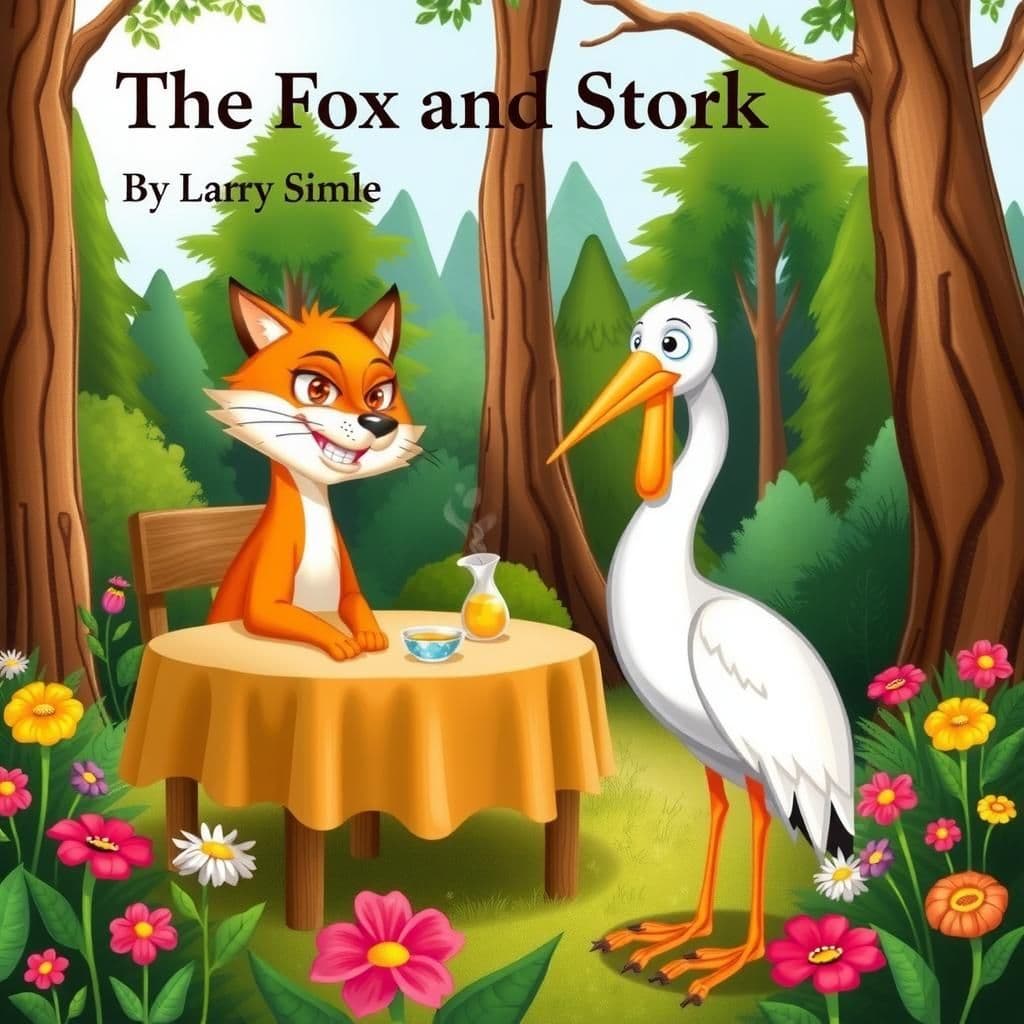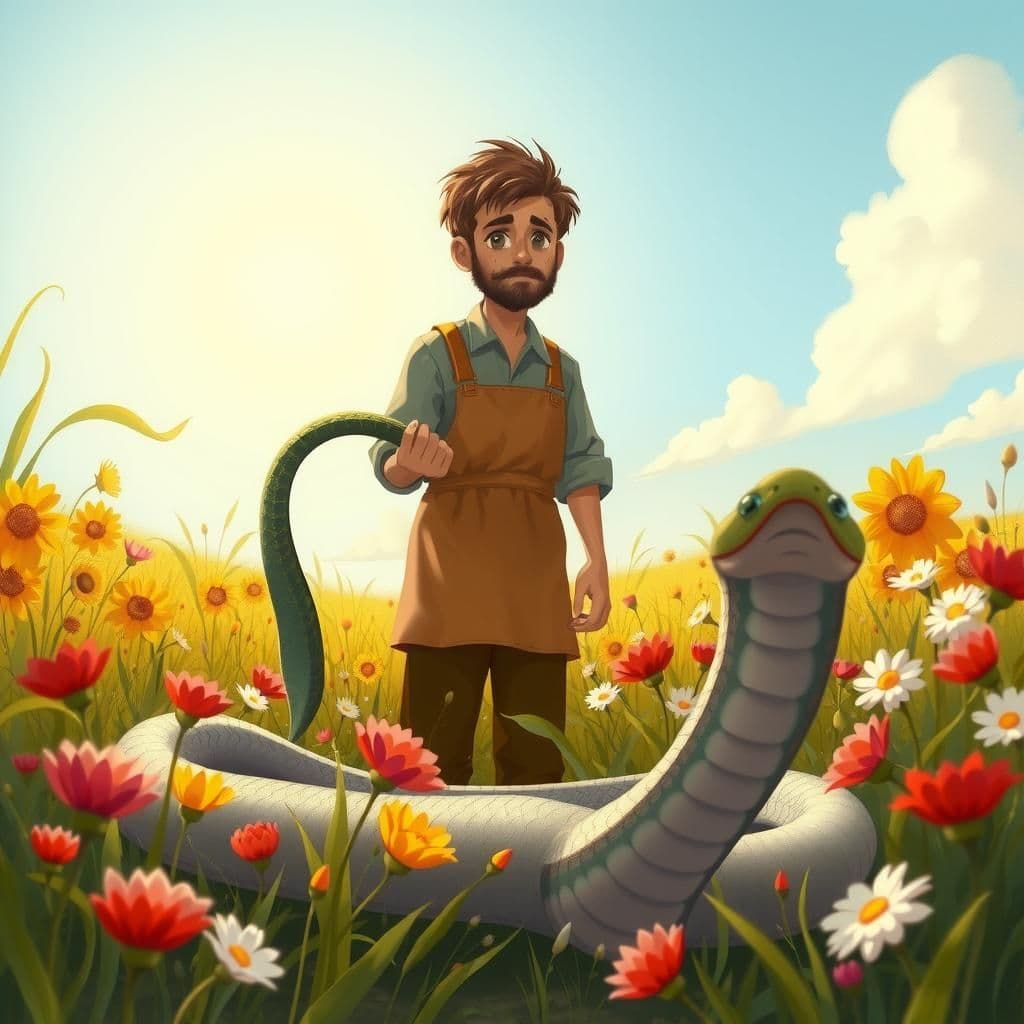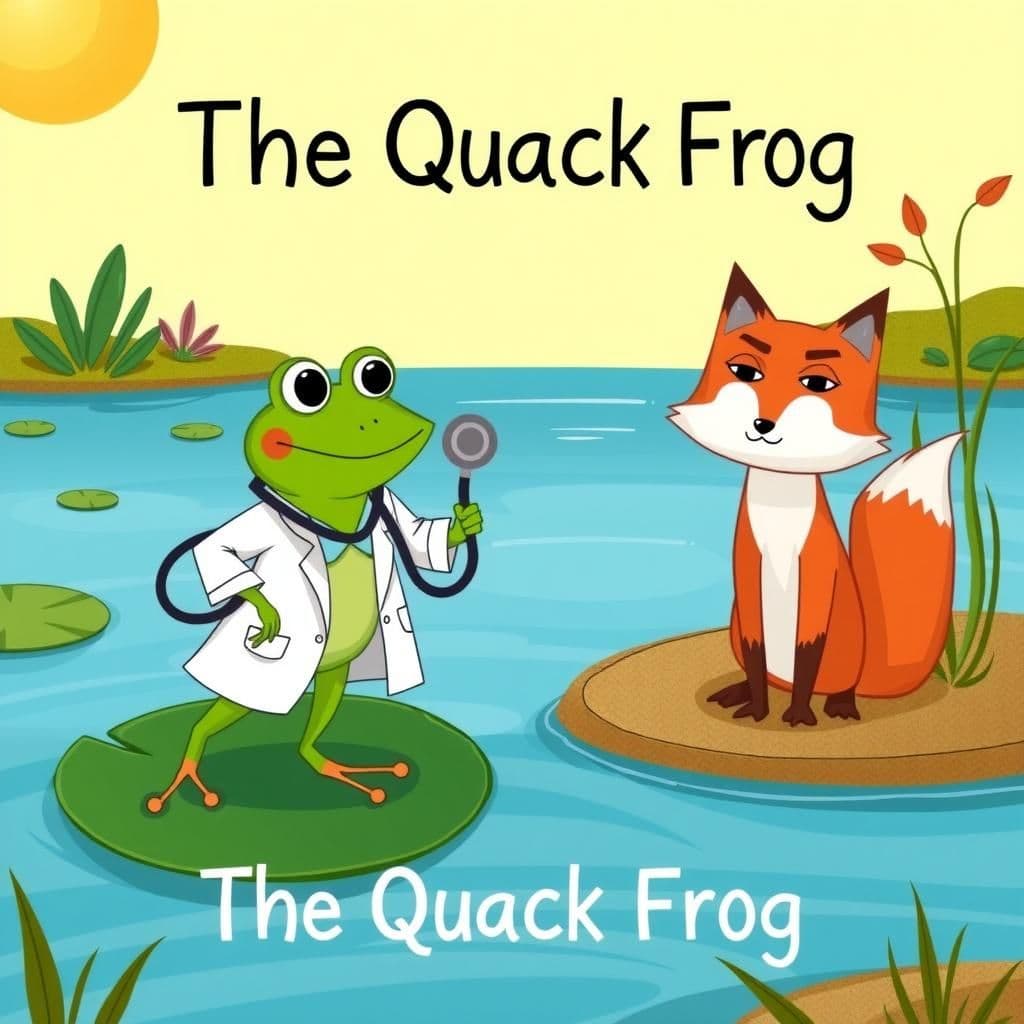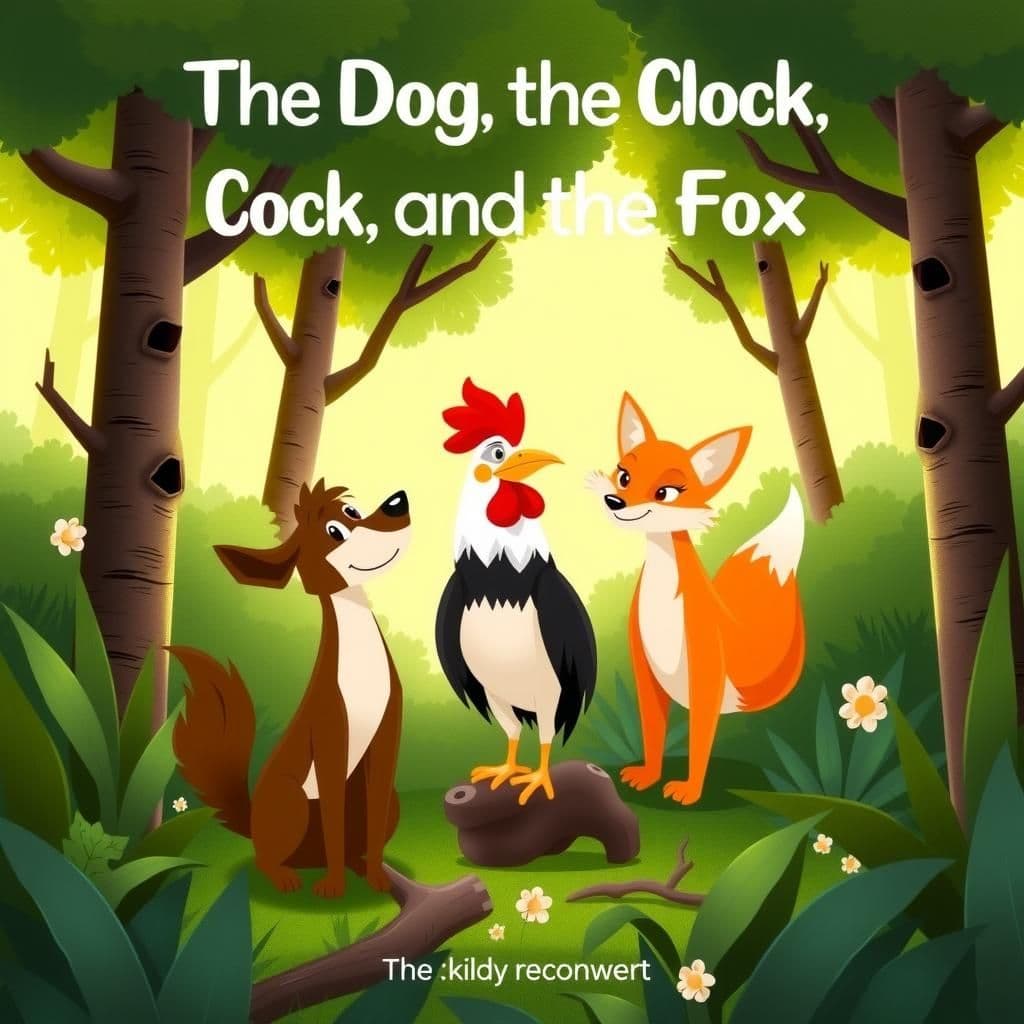The Fox and the Stork
In this short moral tale, the Fox's unkindness towards the Stork, when he serves soup in a shallow dish that she cannot eat, leads to a clever lesson in reciprocity. When the Stork invites the Fox to dinner and serves a meal in a narrow-necked jar that the Fox cannot access, she illustrates the consequences of his actions. This big moral story teaches kids about the importance of treating others with kindness and fairness.

Reveal Moral
"The moral of the story is that treating others poorly can lead to reciprocation of that same behavior."
You May Also Like

The Laborer and the Snake
In "The Laborer and the Snake," a grieving cottager seeks revenge on the snake that killed his infant son, but only succeeds in injuring it by cutting off its tail. Attempting to make peace later, he learns from the snake that true reconciliation is impossible as both are haunted by their mutual losses. This life-changing story imparts valuable lessons on the challenges of forgiveness and the enduring nature of past injuries, making it a poignant example of moral-based storytelling.

The Quack Frog
In "The Quack Frog," a frog falsely claims to be a skilled physician, boasting of his medical expertise to all the animals. However, a skeptical fox highlights the frog's own ailments, teaching young readers a timeless moral about the folly of pretending to have qualifications one does not possess. This short moral tale serves as a valuable lesson learned from stories about the importance of honesty and self-awareness.

The Dog the Cock and the Fox
In this engaging animal story with a moral, a Dog and a Cock, great friends, seek shelter in a thick wood. When a hungry Fox attempts to trick the Cock, he cleverly leads the Fox to the Dog's hiding place, resulting in the Fox's demise. This concise moral story illustrates the value of friendship and cleverness, making it a fitting addition to short story collections with moral lessons for personal growth.